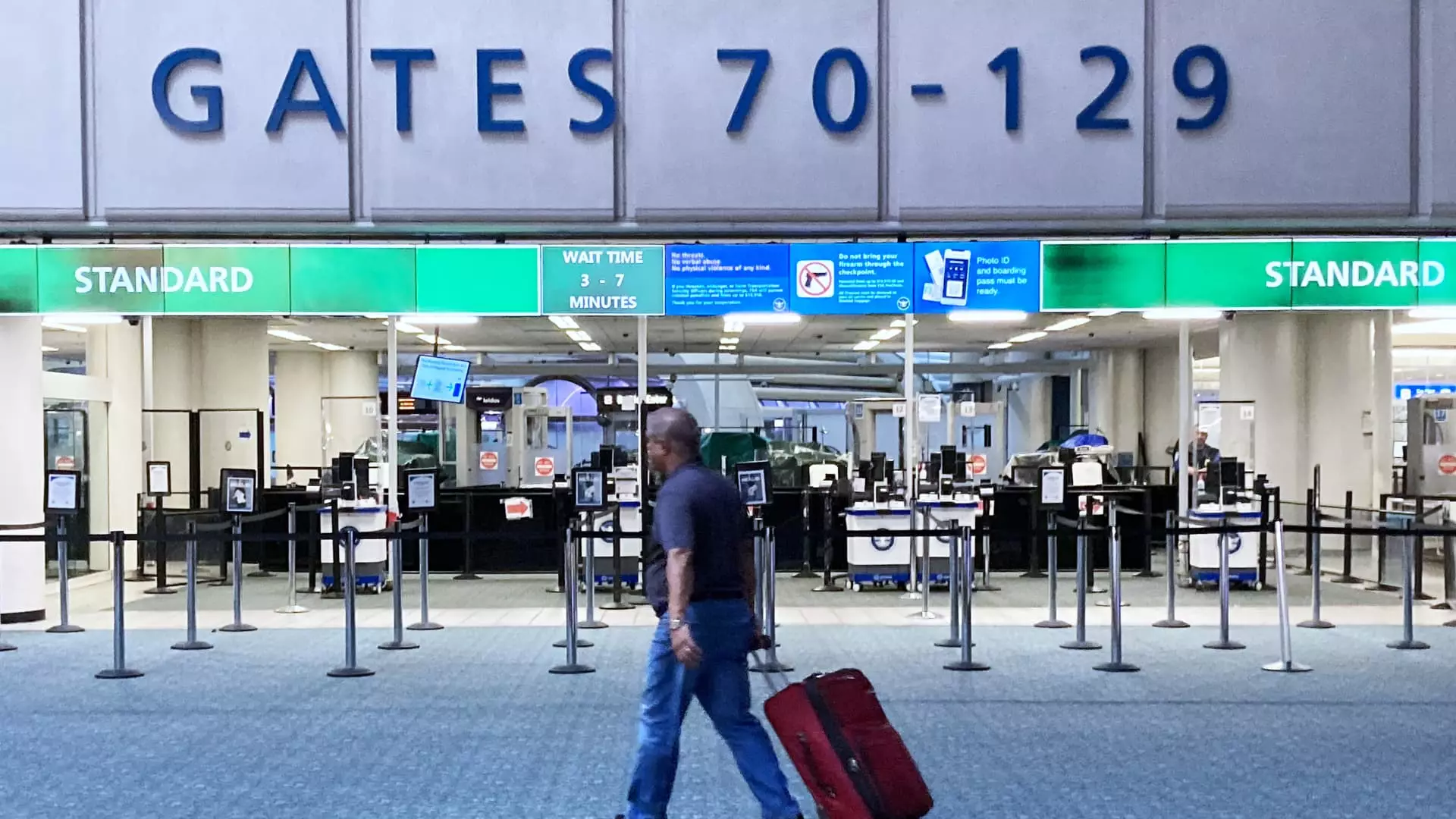As the holiday travel season gains momentum, a potential government shutdown looms ominously over the United States. Recent developments in Congress indicate deep divisions among lawmakers, leading to the rejection of a short-term funding bill backed by President-elect Donald Trump. If negotiations fail to yield a resolution by Saturday at 12:01 a.m. ET, the government may enter a shutdown phase, risking significant economic disruptions and inconveniences for travelers.
The ramifications of a government shutdown are profound, particularly for hundreds of thousands of federal employees who are at risk of being furloughed. The U.S. Travel Association has highlighted that the travel industry could bear a staggering loss of approximately $1 billion per week if the government ceases operations. This figures prominently in the ongoing discussions, as lawmakers grapple with the severe implications of inaction. The president of the association, Geoff Freeman, aptly pointed out that forcing essential personnel—such as air traffic controllers and TSA agents—to work without pay during one of the year’s busiest travel periods does not serve any congressional agenda.
Despite the potential shutdown, commercial travel is anticipated to continue as scheduled. Airlines are preparing for an exceptionally busy holiday season, with United Airlines estimating that it will carry approximately 9.9 million passengers between December 19 and January 6, reflecting a 12% increase from the previous year. Furthermore, the Transportation Security Administration (TSA) forecasts screening over 40 million travelers through January 2. However, the essential nature of TSA and air traffic control personnel means they will be required to work despite the prospect of not receiving their paychecks, raising concerns over morale and operational efficacy during peak travel periods.
TSA Administrator David Pekoske has taken to social media to assure the public that TSA officers will remain vigilant and committed to their roles during a shutdown. However, he also warned that an extended furlough could lead to longer security wait times, which may frustrate travelers eager to reach their destinations. Such delays could exacerbate an already congested airport atmosphere, as the last shutdown stretched for over a month and severely impacted airline traffic along the East Coast.
To comprehend the severity of the situation, one can look back at the government shutdown from late 2018 to early 2019, which became the longest in U.S. history. During that period, infrastructure challenges arose, including air traffic control callouts that led to significant delays and disorganization in a heavily trafficked airspace. The aftermath of that shutdown drew attention to the urgent need for comprehensive strategies to modernize the Federal Aviation Administration (FAA) and enhance the capacity of air traffic management.
As Americans await the results of negotiations in Congress, the fate of the holiday travel season hangs in the balance. A renewed focus on establishing a budget that accommodates the needs of federal employees while enabling the travel industry to thrive is essential. Delta Air Lines’ CEO, Ed Bastian, emphasized that ensuring the FAA’s modernization and hiring of additional air traffic controllers should be a top priority for the incoming administration. This responsibility extends beyond mere travel logistics; it impacts the broader economic stability of the nation.
The looming government shutdown presents not only an administrative challenge but also a substantial threat to the U.S. economy as we brace for a peak travel season. Lawmakers must act swiftly and collaboratively to avoid a situation that would leave countless travelers stranded and impose undue strain on federal workers. It is imperative that leaders recognize the interconnectedness of the economy and citizen experiences, prioritizing solutions that support both the government’s operations and the American public during this critical period. If managed effectively, Congress has the opportunity to avert a crisis that could have far-reaching implications for the nation.

